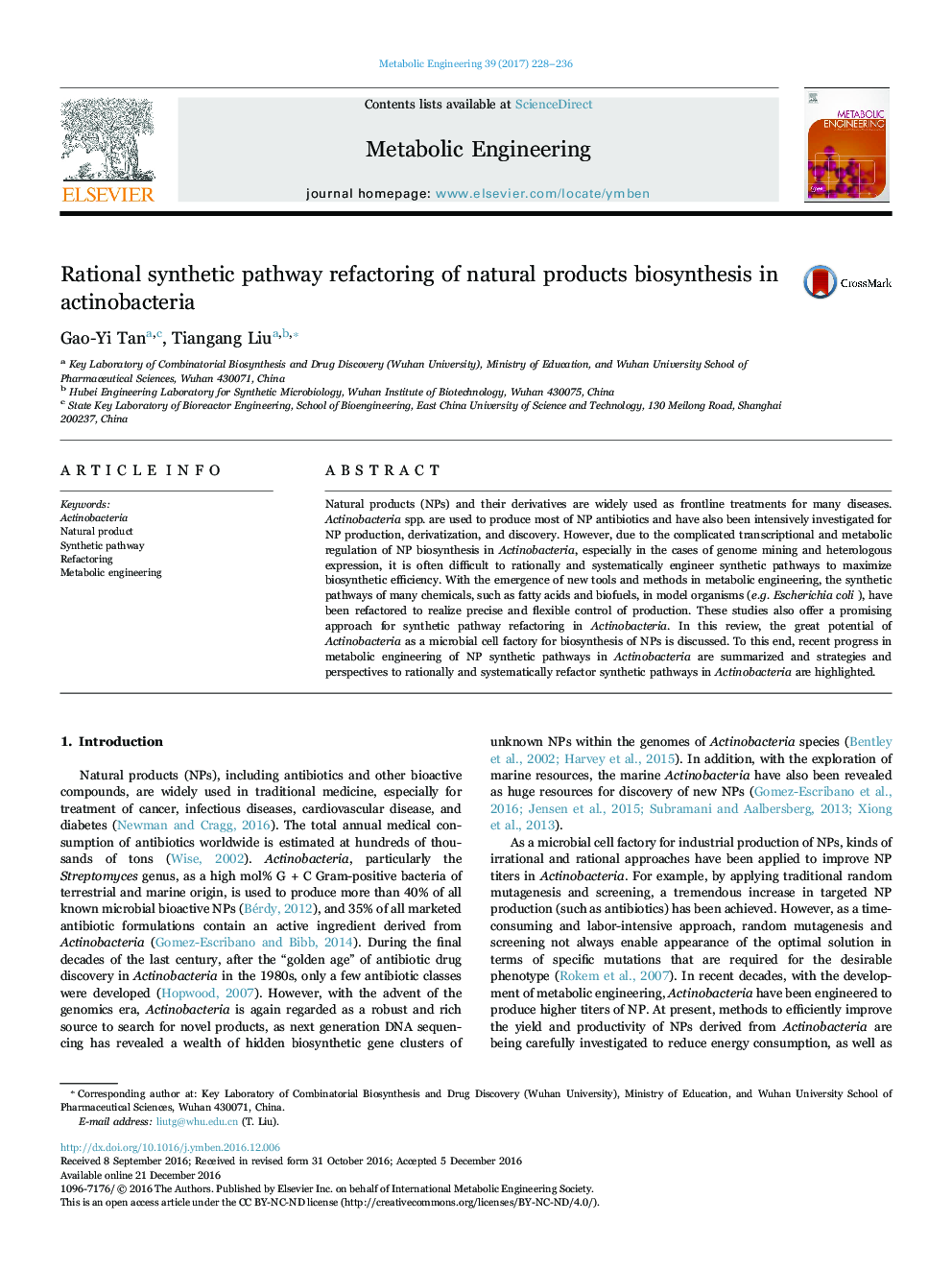| Article ID | Journal | Published Year | Pages | File Type |
|---|---|---|---|---|
| 6452764 | Metabolic Engineering | 2017 | 9 Pages |
â¢The Actinobacteria as a microbial cell factory is important for natural products.â¢Current approaches toward metabolic engineering of NP biosynthetic pathways are summarized.â¢Omics strategy to rationally and systematically refactor the NP synthetic pathway is highlighted.
Natural products (NPs) and their derivatives are widely used as frontline treatments for many diseases. Actinobacteria spp. are used to produce most of NP antibiotics and have also been intensively investigated for NP production, derivatization, and discovery. However, due to the complicated transcriptional and metabolic regulation of NP biosynthesis in Actinobacteria, especially in the cases of genome mining and heterologous expression, it is often difficult to rationally and systematically engineer synthetic pathways to maximize biosynthetic efficiency. With the emergence of new tools and methods in metabolic engineering, the synthetic pathways of many chemicals, such as fatty acids and biofuels, in model organisms (e.g. Escherichia coli ), have been refactored to realize precise and flexible control of production. These studies also offer a promising approach for synthetic pathway refactoring in Actinobacteria. In this review, the great potential of Actinobacteria as a microbial cell factory for biosynthesis of NPs is discussed. To this end, recent progress in metabolic engineering of NP synthetic pathways in Actinobacteria are summarized and strategies and perspectives to rationally and systematically refactor synthetic pathways in Actinobacteria are highlighted.
